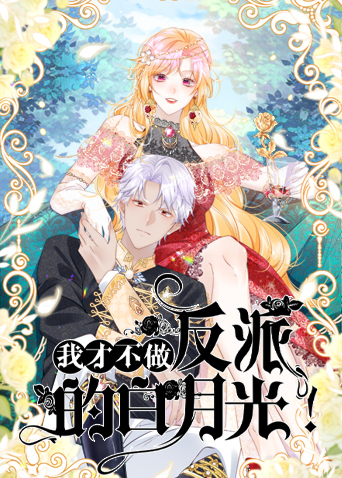克里夫和查克一起从狱中释放回到社会,久久克里夫已经金盆洗手,久久此时他只想过上正常人的普通生活,但他无法抵挡查克的诱惑又重新回到犯罪团伙中,当他赚够了让弟弟结婚和买仓库做生意的钱后他这次打算永远从黑帮中隐退,但又一次他为了解救困境中的查克时,让他走上了不归路。

克里夫和查克一起从狱中释放回到社会,久久克里夫已经金盆洗手,久久此时他只想过上正常人的普通生活,但他无法抵挡查克的诱惑又重新回到犯罪团伙中,当他赚够了让弟弟结婚和买仓库做生意的钱后他这次打算永远从黑帮中隐退,但又一次他为了解救困境中的查克时,让他走上了不归路。
回复 :南方边陲小镇,绰号“钉子李”的老人自恃棋艺高超,他将老将钉在棋盘上,声称无人能令他拔钉挪将,独孤求败。在那个特殊的时代,百万青年上山下乡。小镇新来的书记(牛犇 饰)输棋后愤愤不平,派下属去城里寻找擅长琴棋书画的人才。外号“棋呆子”的北京青年王一生(谢园 饰)稀里糊涂成了破坏文化大革命的现行反革命,最后被寻找他的人救了出去。他似乎对所要去的地方根本没任何想法,只要有饭有棋就一切都好。“何以解忧,惟有下棋。”呆子一心只在棋局,他将在那个陌生的所在和各路高手留下令人神往的对决……本片根据阿城的同名小说改编,并荣获1989年度金鸡奖最佳男演员奖(谢园)。
回复 :Due to some common interests between German and Russian aristocracy ( the Russians even had aristocrats in their past not to mention they had an Empress called Catherine the Great, as great as this German count's heiresses… ), it is not strange that this Teutonic count has understood and even enjoyed Herr S. M. Eisenstein's "Staroye I Novoye".It is not very usual that for the aristocracy to enjoy Bolshevist films full of proletarian demands that put private property at risk or as it happens in this case, a film about the Communist Party's policy on the subject of the collectivization of the Soviet agriculture. Normally this would be perfect gibberish for this German count, but thanks to Herr Eisenstein 's greatness and directorial talent, the hardships of the heroine of the film, Dame Marfa ( Dame Marfa Lapkina ) breached even the thick aristocratic Schloss walls.And that's one of the first remarkable aspects of this oeuvre; in spite of the political subject of the film, the powerful images and lyricism ( astonishing and beautiful shot compositions ), especially during the first part of the movie, preserve the artistic merits entirely while serving a propaganda purpose. The second remarkable aspect of the film is the dichotomy between the old and new, the fight to improve the lot of Dame Marfa and her countrymen. There are many discussions because it is not easy even in Russia to change ancient and conservative customs. There are superb metaphors and social criticism ( illiteracy, bureaucracy, religiosity ) which perfectly fit the film, and last but not least, "Staroye I Novoye", is a kind of archaic documentary about ancient customs established deeply in old Russia, those ones that our heroine must fight against. And there is also a lot about agriculture ( very enlightening for this German count), especially about harvesting and how to fatten Russian cows or pigs ( literally, no pun here… ).Herr Eisenstein had to bear during the last era of his film career, unbelievable censorship and mutilation of his work, as happens with "Staroye I Novoye". The film was reedited and Eisenstein accused of sympathizing with Trostky's policies but fortunately the film was restored and showed by the German-frenchified t.v. channel "ARTE", natürlich!, including an evocative music score by Herr Taras Bujewski, that fits superbly Herr Eisenstein primal artistic interests.And now, if you'll allow me, I must temporarily take my leave because this German Count must buy a tractor for one of his Teutonic heiress.
回复 :四名广播电视专业的大四学生,因为一次选题拍摄,进到深山采访但四人发现这个村子太过安静,村民行为古怪。他们采访的老人家不一样。四人觉得这个山村让人害怕,决定明天采访完赶紧离开。第二天却发现老人死在村子里的池塘边。酷爱侦查的傅柯北追查现场却被人意外打晕,醒来却发现已经被举报成凶手。傅柯北在警局出现怪异行为,晕过去了,醒来后自首。警察却调查出凶手另有其人。并已经搜集到足够的人证物证。安静沉寂的山村,打晕傅柯北的人,突然出现的凶手,傅突然自首,这些都让整个案件像一团厚重的疑云。令人看不透。四名大学生为何会和命案联系在一起。到底是谁,会对两个深居山村,毫无防备的老人,痛下杀手。原因又是什么?

